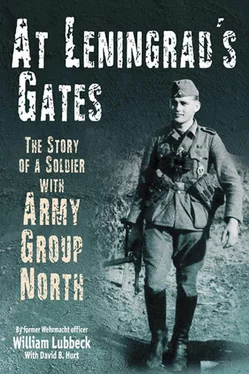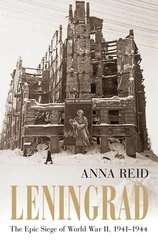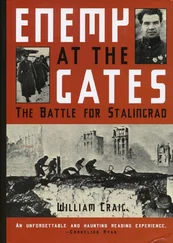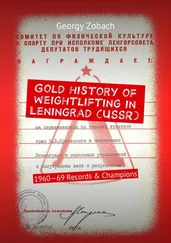Just before the Easter holiday, the residents of small rural communities in Germany would often construct large 20- or 30-foot-high bonfires from logs and other flammable materials on a hill near their village. On the Saturday night before Easter, the bonfires were lit. As we watched, the horizon would be illuminated with the bright glow from 10 or 15 fires burning in the neighboring villages. It was an unforgettable spectacle.
The following morning, my siblings and I awoke to Easter baskets stuffed with treats and boiled eggs before attending a special worship service at our church. Later that day, my parents held an Easter egg hunt in the garden for us. Afterward, my father would come out to the yard with a boiled egg hidden under his jacket.
Squatting down, he would loosen his jacket and let the egg drop down to the ground under him. My young sisters would squeal with delight at the presence of a real Easter Bunny. Though my father was generally a serious man, he also possessed a sense of humor and enjoyed teasing us in a good-natured way, especially my sisters.
Weddings were always major celebrations in Püggen. Everyone in town would ride flower-festooned horses or drive decorated carriages in a large procession over to the farm of the bride’s family to pick her up for the trip to our small church. Following the marriage ceremony, it was customary for the bride and groom to jointly saw a log into halves, which would serve as the legs for a baby cradle. According to the tradition, this assured the couple a family with many children.
While such happy occasions with our families and community did not cease to take place, life would become much more difficult during the Great Depression.
Chapter 2
UNDER THE NAZI DICTATORSHIP
1928–1936
THE GREAT DEPRESSION: 1928–1932
In 1929, a financial disaster struck the world’s economy that sent international investment and trade spiraling downward. In Germany, where business had already fallen into a recession in 1928, the international collapse accelerated a precipitous economic decline, which led to steadily rising levels of unemployment.
During the years of the Great Depression, my family fared better than many other Germans, but the early 1930s were still difficult years for us. Being a child, I never appreciated the severity of the problem and life seemed to go on pretty much normally for me. I still had enough to eat, slept with a roof over my head, and attended school. The economic hardship was more pronounced in the cities than in farming communities, though my parents experienced daily stress as they struggled to pay our bills and keep the farm on a sound financial footing.
When my family could not pay our creditors on time, officers from the local court would come to our home. These visits were a humiliating experience, particularly for my father. My siblings and I were not allowed in the room as the officers affixed Kuckucks (government repossession stickers) on two or three pieces of our best furniture like wardrobes and desks.
Eventually, my father would manage to sell enough livestock or agricultural produce to permit us to pay off our 300 to 1,000 Marks of debt and eliminate the Kuckuck. However, any improvement was temporary. My father’s fine oak desk received a Kuckuck two or three times as we went in and out of debt.
Even in these difficult circumstances, the six farms in Püggen managed to continue operating and providing work for the local laborers. While many farmers around Germany had to sell off part or all of their land because they could not pay their bills or meet their mortgages, my family fortunately avoided having to resort to such desperate measures.
Still, my father sometimes had to stretch out payment for fertilizers, new farm equipment, and repairs to worn out farm machinery, and had to compensate our hired labor with production from our farm rather than cash. Our farm provided us with adequate food, but there was little spare money, even for basic items like new clothes or the replacement of the soles on our shoes.
Aunt Hedwig, a distant relative who lived with us, would stitch labels from various apparel manufacturers into the clothes she sewed for my siblings and me. It was a very thoughtful effort to fool us into thinking that the clothes were purchased from a store, even if we saw through the deception. We probably would have liked to have more and newer outfits than the refurbished ones we ordinarily wore, but realized that our family could not afford such items.
Though it was hard to find the money for such necessities, my father still occasionally treated himself to small luxuries like a mug of beer or the cigars that he loved. On one occasion, he sent me to purchase a stein of beer for him at Püggen’s pub just down the street from our house. Taking the opportunity to taste beer for the first time, I started sipping from his mug on the five-minute walk back home. By the time it reached my father’s hands, a half an inch or more was somehow missing from the top. Growing angry with me, he snapped, “You spilled it again Wilhelm!” Even children never completely escape the stress when times are hard for a family.
Coming when Germany was less than a decade from the economic struggles during and after the Great War, the Depression years tended to reinforce the nation’s conservative social values and increase popular discontent with the post-war state of affairs. Conversations about the recent war itself were frequent and generated strong emotions.
Like most other citizens, I believed that the Great War arose from the refusal of the existing powers—Great Britain, France, and Russia—to accommodate Germany’s rising economic and military strength and to accept our nation’s rightful place as a leading state in the world. Despite the loss of many sons and fathers in the conflict, there was a sense of pride that Germany had defeated Russia and successfully resisted the combined military forces of much of the rest of the world for more than four years of war.
Though Germany agreed to an armistice in late 1918, most Germans did not accept that the nation had truly been defeated, since the German Army still existed as a coherent military force and occupied part of France as well as wide territories in the East. Instead many, if not most, Germans believed it was the revolutionary actions of left-wing Communists and socialists on the home front that had undermined the army’s morale and ultimately compelled the nation to seek a negotiated settlement.
Discussions of the Great War inevitably led to bitter denunciations of the unexpectedly harsh Treaty of Versailles that the Allies subsequently forced on Germany in 1919. Unjustly holding Germany guilty for starting the war, the Treaty inflicted harsh financial reparations, required the surrender of German territory and colonial possessions, and imposed a 100,000-man limit on the German military. Unsurprisingly, many Germans felt a lingering sense of grievance toward France and Great Britain for the country’s difficult conditions.
With my interest in military history, I often spent time talking with local veterans in Püggen and neighboring villages. They invited me along to the meetings of the Stahlhelm (Steel Helmet), a large rightwing paramilitary organization comprised of former soldiers who served in the Great War. Wearing their old uniforms and bearing their military rifles, these veterans assembled together a couple of times a year for large outdoor gatherings in various places across Germany.
Beyond reminiscing about the war, delivering patriotic speeches, eating bratwurst, drinking beer, and leading the crowd in traditional German songs, the group also offered weapons exhibitions to the crowds. More importantly to me, they also gave boys my age a chance to shoot their Mauser rifles on firing ranges. It was a lot of fun, even if the rifle’s recoil would leave my shoulder sore for days.
Читать дальше












